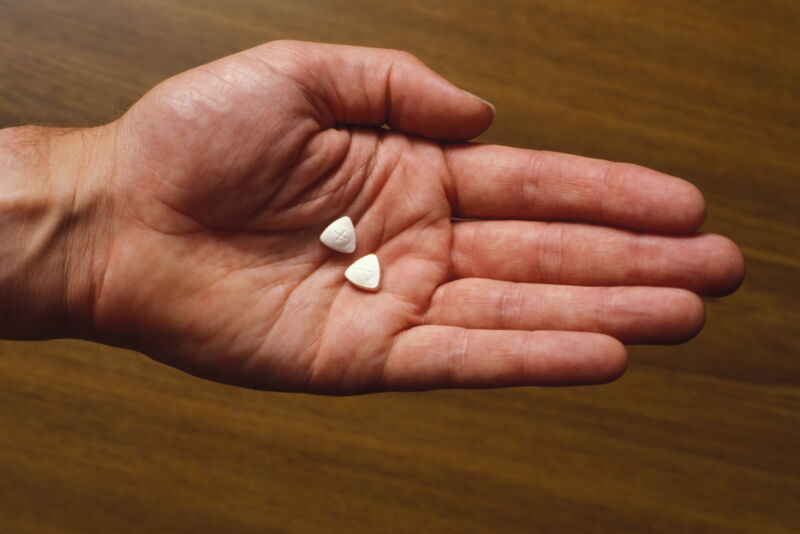
The protection and efficacy knowledge on the usage of MDMA (aka ecstasy) for post-traumatic stress dysfunction remedy is “difficult to interpret,” the Meals and Drug Administration mentioned in a briefing doc posted Friday. The company famous important flaws within the design of the underlying scientific trials in addition to security considerations for the drug, notably cardiovascular harms.
On Tuesday, June 4, the FDA will convene an advisory committee that may assessment the proof and vote on MDMA’s efficacy and whether or not its advantages outweigh its dangers. The FDA doesn’t should comply with the committee’s suggestions, however it typically does. If the FDA subsequently approves MDMA as a part of therapy for PTSD, it might mark a major shift within the federal authorities’s stance on MDMA, in addition to psychedelics, typically. At present, the US Drug Enforcement Administration considers MDMA a Schedule I drug, outlined as one with “no at the moment accepted medical use and a excessive potential for abuse.” It could additionally provide a brand new therapy possibility for sufferers with PTSD, a disabling psychiatric situation with few therapy choices at the moment.
As Ars has reported beforehand, the submission of MDMA for approval relies on two scientific trials. The primary trial, revealed in Nature Drugs in 2021, concerned 90 members with average PTSD and located that MDMA-assisted psychotherapy considerably improved Clinician-Administered PTSD Scale for DSM-5 (CAPS-5) scores in contrast with members who got psychotherapy together with a placebo. Within the second research, revealed in September in Nature Drugs, the discovering held up amongst 104 members with average or extreme PTSD (73 p.c had extreme PTSD).
Within the briefing paperwork launched Friday, the FDA highlighted that there was a excessive potential for bias to have crept into these outcomes. Although the trials have been designed to be double-blind (that means that therapists and trial members weren’t advised who acquired MDMA), the FDA famous that MDMA “produces profound alterations in temper, sensation, suggestibility, and cognition.” Blinding is “almost unattainable,” the FDA wrote. And certainly, roughly 90 p.c of these assigned to take MDMA and 75 p.c of these assigned to a placebo have been capable of precisely guess their therapy task, the FDA notes. As such, it’s “affordable to imagine” that bias and “expectation bias” affected the outcomes of the trials, the FDA concluded.
The company additionally famous considerations that MDMA triggered “important will increase in blood stress and pulse,” which may set off cardiac occasions, similar to coronary heart assaults. Nonetheless, the trial knowledge was restricted for assessing the dangers of those antagonistic occasions.
The FDA additionally dinged the research for not together with knowledge on whether or not members skilled results similar to “euphoria” after taking MDMA—an anticipated impact that might point out the drug’s potential for abuse.
In all, the FDA’s assessment offered a sophisticated image of MDMA’s risk-benefit evaluation, one that ought to make for an fascinating dialogue Tuesday. The FDA’s criticisms follows an much more important report launched earlier this month by the Institute for Medical and Financial Assessment (ICER), which recognized “substantial considerations concerning the validity of the outcomes” from the scientific trials.
Just like the FDA, ICER discovered the trials to be “primarily unblinded.” Nonetheless, ICER went additional, having performed a lot of interviews with trial members and others concerned, discovering that the trials largely pulled from an present neighborhood of psychedelic advocates and supporters, introducing important bias. “Considerations have been raised by some that therapists inspired favorable stories by sufferers and discouraged damaging stories by sufferers together with discouraging stories of considerable harms, doubtlessly biasing the recording of advantages and harms,” the report mentioned. MDMA is understood to induce confusion, melancholy, and paranoia in some. One participant reported feeling “relentlessly suicidal” through the trial, however that consequence was not included within the trial’s last outcomes.
Varied individuals advised ICER that the neighborhood concerned within the trials regarded psychedelics “extra like a non secular motion than like pharmaceutical merchandise.” Some members felt as if “they might be shunned in the event that they reported unhealthy outcomes or that it may result in future sufferers being denied the advantages of MDMA-AP.”
In all, ICER concluded that the proof accessible to evaluate for MDMA therapy is “inadequate.”

